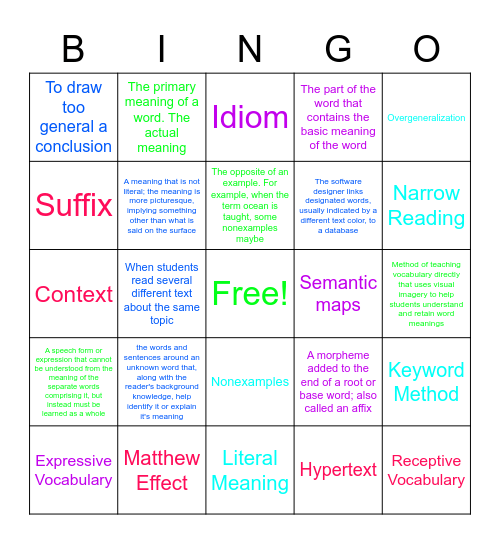

This bingo card has a free space and 24 words: the words and sentences around an unknown word that, along with the reader's background knowledge, help identify it or explain it's meaning, Matthew Effect, The opposite of an example. For example, when the term ocean is taught, some nonexamples maybe, Expressive Vocabulary, Overgeneralization, To draw too general a conclusion, Suffix, The primary meaning of a word. The actual meaning, Semantic maps, Nonexamples, The software designer links designated words, usually indicated by a different text color, to a database, Context, A morpheme added to the end of a root or base word; also called an affix, Keyword Method, A meaning that is not literal; the meaning is more picturesque, implying something other than what is said on the surface, Hypertext, Method of teaching vocabulary directly that uses visual imagery to help students understand and retain word meanings, Idiom, Narrow Reading, When students read several different text about the same topic, Receptive Vocabulary, A speech form or expression that cannot be understood from the meaning of the separate words comprising it, but instead must be learned as a whole, The part of the word that contains the basic meaning of the word and Literal Meaning.
LOTTO | Vocabulary Bingo | PSSA Review | Unit 1 - Literacy Essentials | LOTTO
Share this URL with your players:
For more control of your online game, create a clone of this card first.
Learn how to conduct a bingo game.
With players vying for a you'll have to call about __ items before someone wins. There's a __% chance that a lucky player would win after calling __ items.
Tip: If you want your game to last longer (on average), add more unique words/images to it.